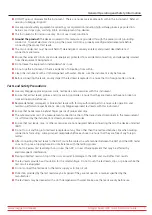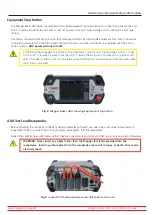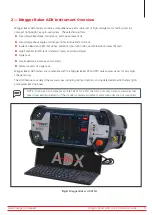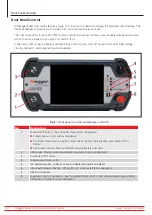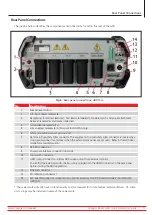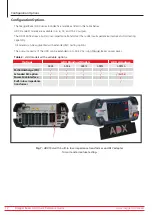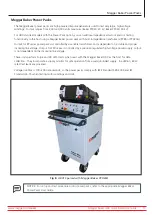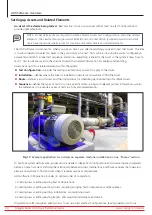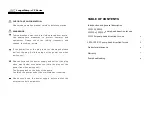
Ensure Proper Grounding and Discharge after Conducting DC Tests
Upon completion of any DC Test described in this document, the device under test (DUT) should not be considered safe
to touch or handle until it has been completely discharged and solidly grounded.
When the DUT has been fully discharged and the tester voltage reduced to zero, the DUT should be solidly grounded.
The ground connection should be kept in place until the absorbed charge is completely dissipated.
If ground
connection is removed before sufficient time has elapsed, a recovery voltage may build up, presenting a danger to
personnel who might touch the DUT.
For larger machines (greater than 2300 volts), a minimum grounding time of two hours or four times the DC test
duration—whichever is greater—is recommended to ensure sufficient energy dissipation. For smaller machines, a
shorter time may be acceptable. However, the user must be satisfied that no safety hazard exists before anyone
touches or handles the DUT.
The ADX provides a sufficient grounding path for winding discharge while the test leads are connected to the winding
and ground/frame. If the test leads need to be removed before the full discharge time has elapsed, secondary
grounding equipment should be attached between the DUT and station ground before removing the test leads. When
a proper ground connection is made, the tester can be safely disconnected from the DUT.
IEEE Std 95™-2002 provides detailed descriptions of the safety issues, along with guidelines for properly discharging
and grounding the device under test. Refer to this standard to ensure that you fully understand the process and the
proper steps to take to ensure safety to all personnel in the service area.
WARNING: DANGER FROM LOSS OF GROUND. Upon loss of the protective ground connection,
all accessible conductive parts, including knobs and controls that may appear to be insulated,
can cause an electric shock!
Installation Category Definitions
CAT IV—Measurement category IV: Equipment connected between the origin of the low-voltage mains supply and
distribution panel.
CAT III—Measurement category III: Equipment connected between the distribution panel and electrical outlets.
CAT II—Measurement category II: Equipment connected between the electrical outlets and user’s equipment.
Measurement equipment may be safely connected to circuits at the marked rating or lower.
www.megger.com/baker
Megger Baker ADX Quick Reference Guide
5
General Operating and Safety Information









